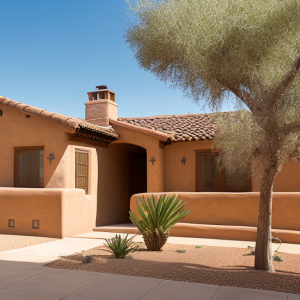
Harmony in Arid Lands: The Unsung Importance of Native Plants in Fujairah, UAE
The arid landscapes of Fujairah, a picturesque emirate in the United Arab Emirates, are often overshadowed by the towering structures and modern marvels that define the region. However, beneath the facade of urban development lies a vital aspect of the ecosystem that has sustained life in this arid land for centuries – native plants. These often overlooked and underappreciated flora play a crucial role in maintaining the delicate balance of Fujairah's ecosystem, contributing to the region's environmental resilience and cultural heritage.
Fujairah's native plants have adapted to the challenging conditions of the arid climate, showcasing remarkable resilience in the face of scorching temperatures, limited water resources, and nutrient-poor soils. These plants have evolved unique mechanisms to thrive in such harsh environments, making them well-suited to the specific challenges posed by the arid landscapes of the UAE.
One of the key benefits of native plants lies in their ability to conserve water, a precious resource in the desert environment of Fujairah. These plants have developed efficient water storage systems, deep root structures, and waxy coatings on their leaves to minimize water loss through transpiration. By adapting to these water-saving strategies, native plants not only survive in arid conditions but also contribute to the conservation of water resources in the region.
Moreover, the native plants of Fujairah play a vital role in preventing soil erosion. The extensive root systems of these plants help bind the soil together, reducing the risk of erosion caused by wind and water. This is particularly important in a region where windblown sand and shifting dunes are common natural phenomena. The stability provided by native plants helps maintain the integrity of the soil, preventing the loss of fertile topsoil and supporting overall ecosystem health.
Beyond their ecological significance, native plants in Fujairah also hold cultural importance. They have been an integral part of the traditional practices of the indigenous communities, serving as a source of food, medicine, and materials for crafting. The deep connection between the people of Fujairah and their native flora is reflected in the rich tapestry of local customs and traditions.
In addition to their practical uses, native plants contribute to the aesthetic appeal of Fujairah's landscapes. The unique shapes, colors, and textures of these plants add a distinct character to the region, creating a sense of place that is deeply rooted in the natural environment. As urbanization continues to reshape Fujairah, preserving and integrating native plants into urban landscapes can enhance the overall visual appeal while maintaining a connection to the region's natural heritage.
Despite their importance, native plants in Fujairah face threats from various sources, including habitat destruction, invasive species, and climate change. Rapid urban development, agricultural expansion, and infrastructure projects can lead to the loss of natural habitats for these plants, disrupting the delicate balance of the ecosystem. Conservation efforts are crucial to safeguarding the biodiversity and ecological resilience that native plants provide to Fujairah.
Education and awareness are key components of successful conservation initiatives. By promoting the understanding of the ecological and cultural significance of native plants, communities, policymakers, and businesses can work together to develop sustainable practices that prioritize the preservation of these valuable species. Conservation efforts may include habitat restoration projects, the establishment of protected areas, and the implementation of policies that promote the sustainable use of natural resources.
In conclusion, the native plants of Fujairah, UAE, play a multifaceted role in maintaining the environmental, cultural, and aesthetic balance of the region. Their ability to thrive in the challenging conditions of the arid landscape highlights their resilience and adaptability. As we navigate the complexities of modern development, it is essential to recognize the intrinsic value of these plants and prioritize their conservation. By doing so, we can ensure that Fujairah's native plants continue to contribute to the ecological health and cultural heritage of this unique and vibrant emirate.
